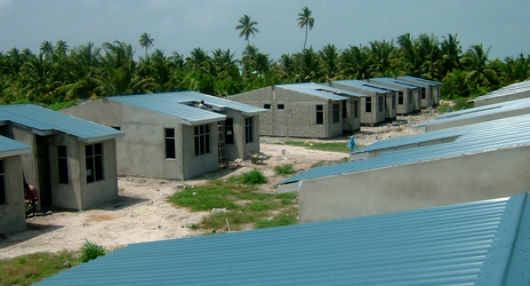Government’s claim of providing housing for tsunami victims disputed
The island council of Vilufushi in the south-central Thaa atoll has disputed the government’s claim of providing permanent shelter for families displaced by the December 2004 Indian Ocean tsunami.

28 Dec 2016, 09:00
The island council of Vilufushi in the south-central Thaa atoll has disputed the government’s claim of providing permanent shelter for families displaced by the December 2004 Indian Ocean tsunami.
Speaking at a ceremony held Monday night to mark the 12th anniversary of the tsunami, Defence Minister Adam Shareef Umar said the current administration has completed providing housing for families who lost their homes in the worst natural disaster in recorded Maldivian history.
“Up until yesterday, many people affected by the tsunami were living in difficult conditions. But as we hold this ceremony today, we must note that those people and especially those who lost their homes have been provided with permanent shelter by President [Abdulla] Yameen’s government,” he said.
The tsunami affected nearly a third of the Maldives’ population of 300,000, leaving 82 people dead and 26 missing and presumed dead. Some 21,663 people were displaced after a quarter of inhabited islands were damaged and 14 islands were completely evacuated.
Become a member
Get full access to our archive and personalise your experience.
Already a member?
Discussion
No comments yet. Be the first to share your thoughts!
No comments yet. Be the first to join the conversation!
Join the Conversation
Sign in to share your thoughts under an alias and take part in the discussion. Independent journalism thrives on open, respectful debate — your voice matters.




